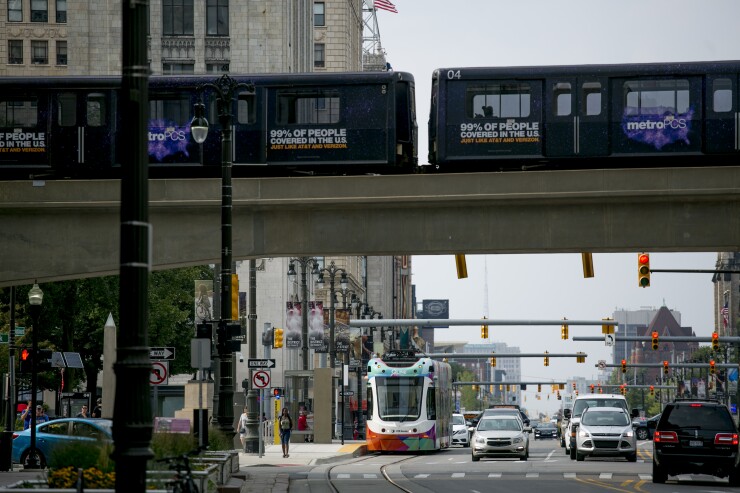A tender offer Detroit financed through a bond refunding that priced Friday will reduce a spike in debt service payments by nearly $155 million between fiscal 2025 and 2030, according to the city.
In the tender offer that expired Dec. 3, investors returned about $200 million of the nearly $632 million of series 2014B financial recovery bonds that mature in 2044. The bonds were repurchased at between $85 to $87 per $100 of bonds.

“With today’s transaction, the City has continued its policy of proactively solving long-term financial issues. Combined with establishing the Retiree Protection Fund, the City has now put in place solutions to both major challenges left by the structure of the Plan of Adjustment coming out of the bankruptcy,” said John Hill, Detroit’s Chief Financial Officer, who plans to step down at the end of the month. “I’m not aware of many other cities that are looking out over the next decade and tackling major future problems today.”
The city said the bond repurchase also addresses a key rating agency concern over how the city would handle the rising debt service schedule for the bonds, issued to fund the settlement that allowed Detroit to exit bankruptcy in 2014.
Moody’s upgraded the city’s issuer rating to Ba3 from B1 in May. It assigns a stable outlook. In December, S&P Global Ratings upgraded the city’s issuer credit rating to B-plus. The outlooks are stable.
The repurchased bonds are unsecured and were used to pay off various creditors. Issued as term bonds, the debt has a 30-year maturity, and bears interest at 4% for the first 20 years and 6% for the last 10 years.
Payments are interest-only for the first 10 years and start amortizing principal in year 11. That would have increased debt payments to $107 million from $75 million annually starting in 2025 just as the city resumed making actuarially determined contributions to its legacy pension plans in fiscal 2024.
The city’s most recent estimate pegs its fiscal 2024 contribution requirement at $140 million, equal to 14% of fiscal 2017 operating revenue. The city has put aside roughly $105 million in a Retiree Protection Fund in preparation for the increase in pension payments.
The redemption was financed by roughly $176 million in bonds backed by a fifth lien on the city’s distributable state aid revenue. The bonds were sold through the Michigan Finance Authority on Friday at par with coupons of 4.92% in 2039 and 5.02% in 2043, achieving a net present value savings of $10 million.
Moody’s rates the DSA bonds Aa3. S&P rates the bonds AA-minus. Detroit has $621 million of bonds outstanding that are secured by distributable state aid under second, third and fourth liens.
Goldman Sachs is the lead manager. Citi and Siebert Cisneros Shank & Co. are the co-managers. Dickinson Wright PLLC is bond counsel.
The city redeemed $70 million of
Last Tuesday the city priced $135 million of speculative-grade bonds in its first standalone deal since bankruptcy.
The new money unlimited tax general obligation bonds are part of $225 million in tax-exempt borrowing the city council has authorized. The remaining bonds are projected to be issued in 2021.
The bonds will be used to finance capital improvement projects including a bus terminal, repairs to the Charles H. Wright Museum of African American History and park upgrades, as well as assembly of land for future economic redevelopment.
"This week shows that we are committed to responsible use of credit to help the City build for the future, while also reducing long-term debts that could undo the progress we’ve made,” Mayor Mike Duggan said in a statement. “Eliminating this debt cliff removes another major roadblock for Detroit’s long-term recovery.”





